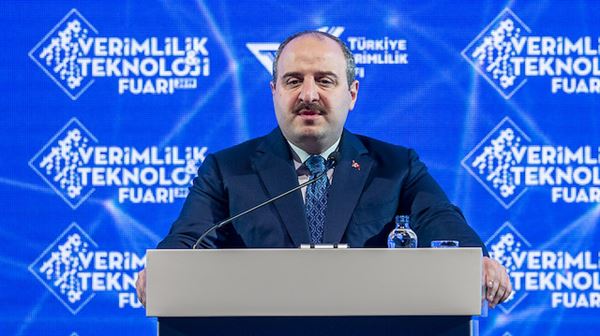Technologic innovations should be adapted to the production to raise productivity, the Turkish industry and technology minister said on Thursday. Turk
Technologic innovations should be adapted to the production to raise productivity, the Turkish industry and technology minister said on Thursday.
Turkey will reach its sustainable and stronger economy targets with policies which will raise productivity in industry, agriculture, tourism, energy and health, Mustafa Varank stressed in an event on the theme of productivity, in the capital Ankara.
“We want original ideas, new technologies and innovative perspectives to dominate the production,” he said, adding: “We do not want to be a market for new technologies, we want to be a producer of them”.
Turkey makes efforts to extend companies’ capabilities by building model plants and innovation centers, he stressed.
Turkey has been growing 5.6% on average each year for the last 16 years, he said, and noted: “We aim to further raise the growth performance”.
Preliminary data, such as orders, capacity utilization rate and economic confidence, for the growth are positive, he stressed.
Innovations make economy competitive
Mustafa Sentop, the Turkish parliament speaker, said Turkey wastes around 15% of its GDP every year, by misusing energy, water, and food resources.
“With the current waste of resources every year, we could build six more Istanbul Airports, hundreds kilometers of motorways or complete all required investments,” he noted.
Innovations make production and economy competitive, and productivity is significant for both production and consumption, Sentop underlined.
Turkey, an energy-importer and water-scarce country, should use its resources more efficiently, he said.
Turkish population will reach 90 million within 10 years, which will demand further resources, Sentop added.
